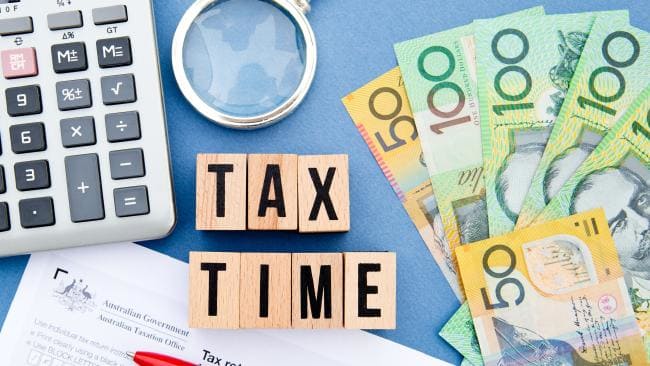Property Investor Needs to Consider Before the End of the Financial Year. June 30 is nearly here but our end of year tax tips for property investors can make life a little easier and more profitable.
The end of financial year (EOFY) is a busy time of the year for many individuals and businesses but being prepared and having your paperwork in order are the keys to effectively making the most of deductions and benefits for your investment property.
Here are a few key things to consider before the clock ticks over to July:
- Review Costs
Is your business or investment property hemorrhaging cash in areas you do not need? Pool maybe? Now is the time to review your budget and protect your income. Make some time (without any distractions) to take stock and review what costs you need and what you can cut or get a better deal on.
- Get To Those Minor Repairs

Whether it is fixing a leaking tap, repairing a dodgy door or adding a fresh coat of paint, deductions related to wear and tear or maintenance of property are all immediate tax deductions for property investors. The Australian Tax Office (ATO) treats larger renovations as capital improvements so these need to be written off over several years. If your investment property was built after 18 July 1985 it’s recommended you organise a depreciation schedule from a quantity surveyor.
- Prepay Insurance Policy and Other Expenses
Any expenses which are potentially related to the next tax year can be prepaid, and this includes the landlord insurance premium and other things related to your investment property such as professional subscriptions, union fees, and insurance fees.
- Rental Property Visits
Changes announced in last month’s Federal Budget mean that after June 30 this year you can no longer write off the costs of travel to and from your residential investment property. Cohen Handler Buyer’s Agent for Melbourne, Scott Hall advised it was best to do any inspection visits before the end of the financial year.
For a property not within driving distance, the cost of airfares, accommodation, and car hire can all be claimed. If you have a property within driving distance you can either claim the 66 cents-per-km flat rate, if you’re doing less than 5000km per year or claim your actual costs of petrol and an element of servicing and insurance.
You need to keep a log book recording your journeys, any working trips, plus trips to rental properties. From that, you can work out the proportion that relates to rental property and then apply that to a proportion of all your expenses.
- Delay buying appliances and equipment
Generally appliances and equipment such as ovens and hot water systems depreciate over time so if you buy an item in June, you will only be able to claim one month of depreciation, which is a fraction of what you have spent. If possible, delay the purchase until early in the financial year.
- Claim it All
Make sure you know what you can claim in relation to the investment property and keep your receipts. Some of the expenses you may be able to claim include:
- Advertising for tenants
- Cleaning costs
- Council and water rates
- Electricity and gas
- Gardening costs.
- Look Forward
If you have left things to the last minute or things haven’t gone as smoothly as they could, it’s a good time to start thinking about what you can do better in preparation for next year. This might include establishing a better filing system or being more diligent with keeping detailed records of all your rental income and expenses. Also find yourself a qualified tax accountant that you feel comfortable with, and who will take the time to explain all related claims and be happy to answer your questions.
EOFY Check List
Examples of common immediate deductions:
- Advertising for tenants
- Accountancy costs
- Body corporate fees and charges
- Council rates
- Water charges
- Land tax
- Cleaning
- Gardening and lawn mowing
- Pest control
- Insurance (building, contents, public liability)
- Interest expenses
- Property agent’s management fees
- Repairs and maintenance
- Travel undertaken to inspect the property, to collect the rent or for maintenance.
Examples of common depreciation expenses:
- Furniture
- Carpets
- Curtains.
Examples of common capital works deductions:
- A building or extension, such as a new room, garage, patio or pergola
- Alterations – such as removing or adding an internal wall
- Structural improvements – such as adding a gazebo, carport, sealed driveway or fence.
Source: ATO
Everything you could possibly need to know about deductions and depreciation can be found in the Residential Rental Properties section of the ATO website.
House prices are on the rise. Find out the value of your property now.
Get a free online property report from Hicks Real Estate. It takes seconds.






